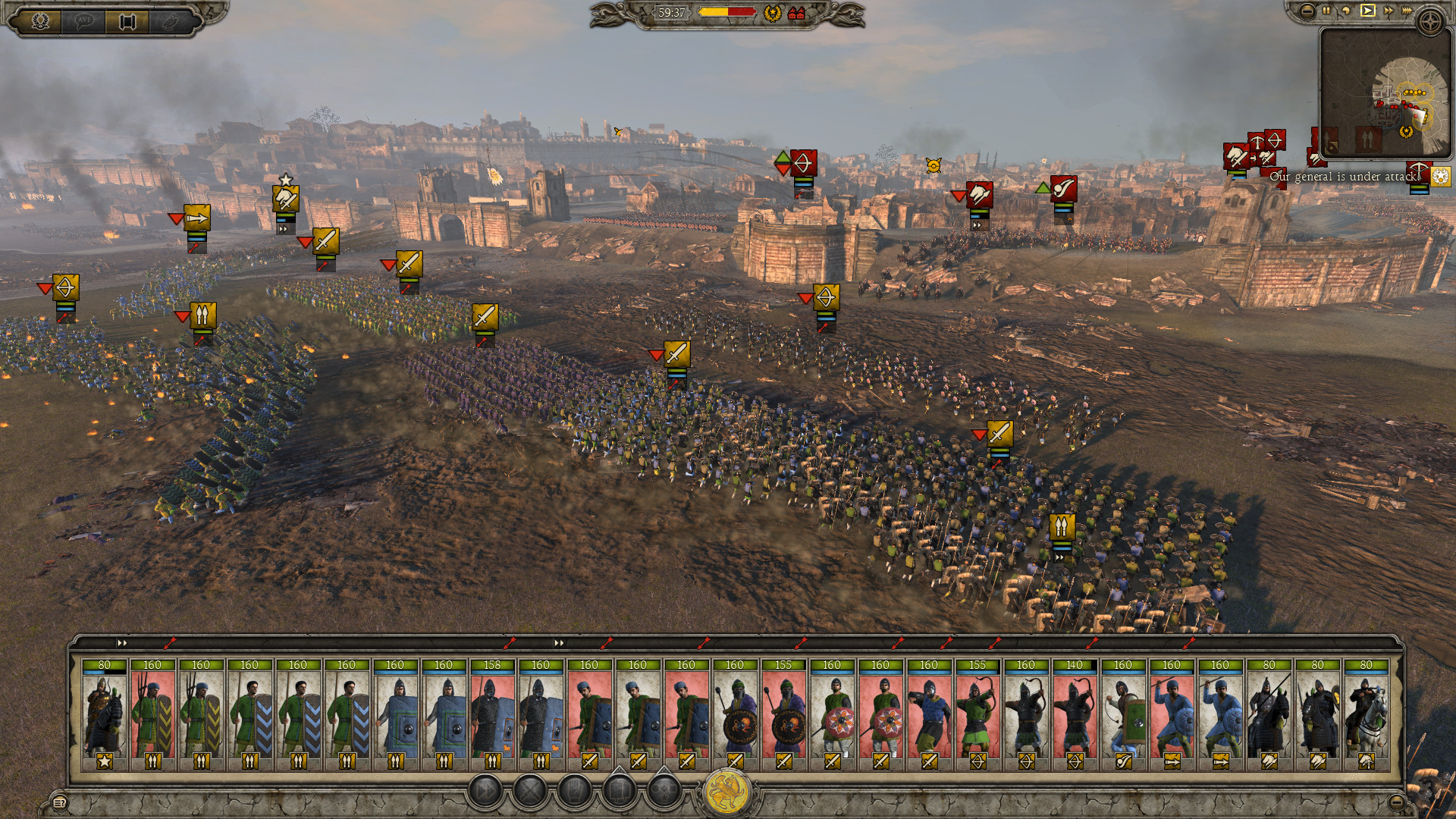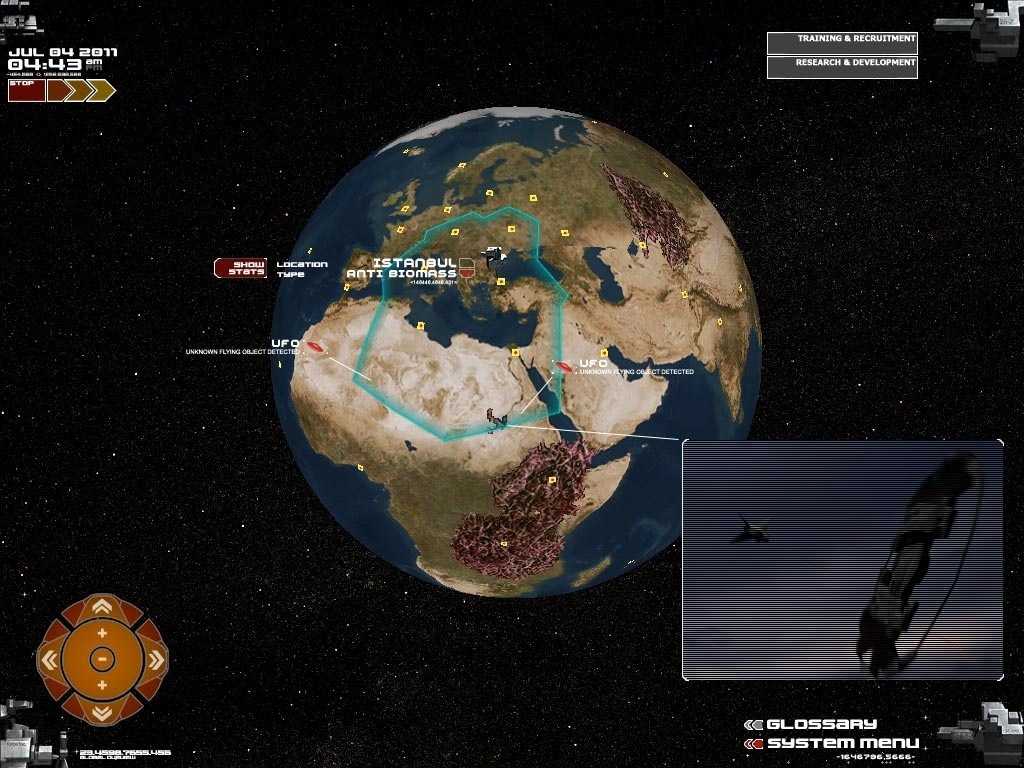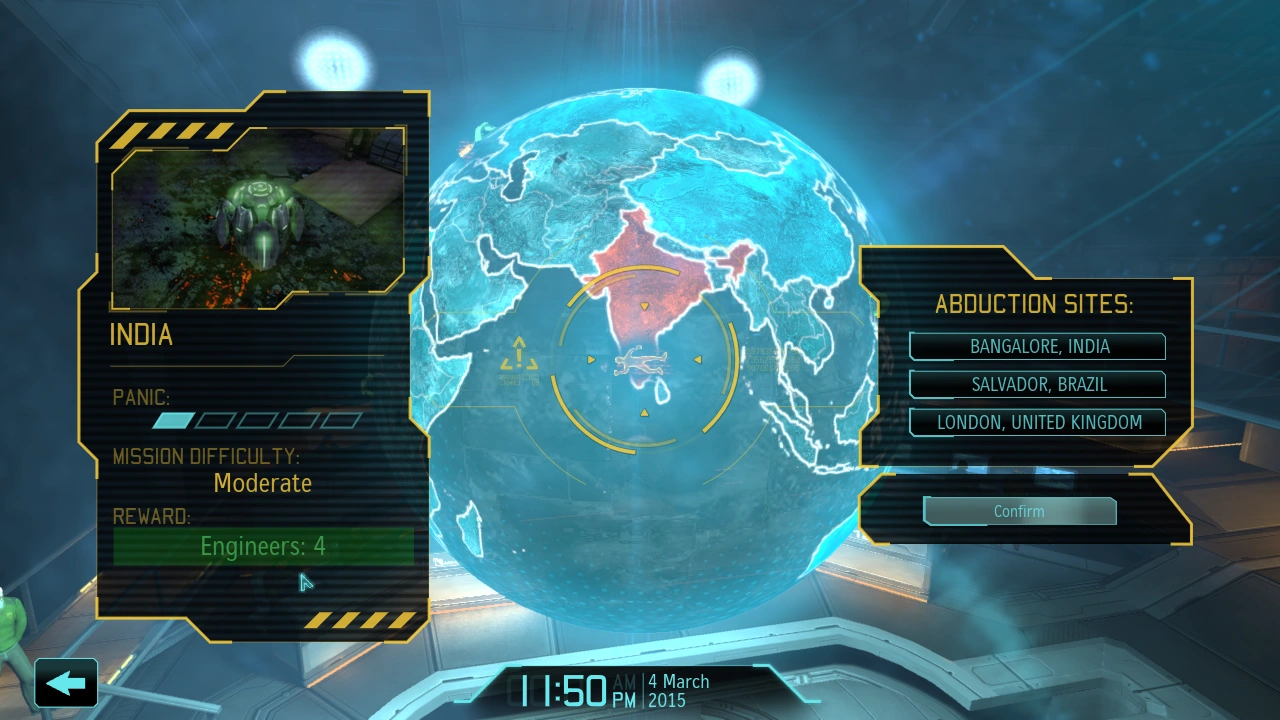Today's post comes from my wife, Jessica Mayorga. Enjoy!
If you come across a list of the top PC games of all time written by anyone who was a substantial gamer in the mid 90s, the game UFO: Enemy Unknown, also know as X-COM, will frequently possess one of the tops spots on the list, often the top spot, often sharing that position with one of the Baldur's Gate games. Yet for so popular and lauded a title, X-COM is an odd duck in game design because no designer has ever been able to exactly capture how the game works, despite many, many attempts to re-capture it's magic. The closest attempt, perhaps, was the recent re-imagining of the game presented in X-COM: Enemy Unknown, although for several reasons which shall be discussed later that title didn't quite hit the mark. This is in addition to several other imitator games (most notably the UFO series) which also never quite managed to 'get' it. While the Baldur's Gate formula has been successfully replicated to great effect many times, X-COM has remained a bit of a puzzle.
I mention Baldur's Gate for another
reason than simply comparing it's success. In a way, X-COM and
Baldur's Gate are somewhat similar games, at least on the surface.
Both involve multi-person tactical combat with plenty of time to
think over decisions. Both
involve squad management and a meta-game above the tactical action.
Both involve improving the skills of your squad members. Both are quite
long and take many hours to complete. Finally, both involve the possibility of permanent death. In essence, X-COM
and BG are both tactical strategy games involving a larger,
overarching campaign.
Nobody, of course, would claim these to be games of the same genre. The base management in X-COM is more open ended. Characters are never expendable in BG and have much more involved level progressions. X-COM's gameplay is emergent whereas BG's is scripted. Individual actions in X-COM are far more impactful on not only the mission but on the entire campaign, either positively or negatively, whereas in BG even death is recoverable. In actual play, save-scumming is the norm in BG if a character goes down in combat, whereas in X-COM players are far less likely to reload a previous save over one dead soldier, no matter how cleverly named. This demonstrates to us why X-COM is not in BG's genre, the Tactical RPG, whereas Icewind Dale, Freedom Force and Fire Emblem are.
Nobody, of course, would claim these to be games of the same genre. The base management in X-COM is more open ended. Characters are never expendable in BG and have much more involved level progressions. X-COM's gameplay is emergent whereas BG's is scripted. Individual actions in X-COM are far more impactful on not only the mission but on the entire campaign, either positively or negatively, whereas in BG even death is recoverable. In actual play, save-scumming is the norm in BG if a character goes down in combat, whereas in X-COM players are far less likely to reload a previous save over one dead soldier, no matter how cleverly named. This demonstrates to us why X-COM is not in BG's genre, the Tactical RPG, whereas Icewind Dale, Freedom Force and Fire Emblem are.
This isn't X-COM.
We can use a similar method to talk
about why X-COM isn't in the same genre as a Total War game. Again,
both TW and X-COM have a grand campaign where individual conflicts
are fought out directly by the player using a completely different strategic system. Both have light experience progressions for units. In both games, when a unit is
damaged they need time to heal which can exclude them from the next battle and if they are destroyed they must be
replaced completely. Both involve managing facilities and treasuries, and both
have failure, even after many hours of gameplay, as a distinct
possibility.
Yet again, the games are qualitatively
different. In X-COM good global strategy on the part of the the
player allows them only limited control over the nature and stakes of
the next mission, while in TW, especially the more recent ones, the
game can theoretically be won without winning a single tactical
battle yourself simply by having better positioning in the campaign
and using auto-resolve liberally. An experienced unit is more
valuable in X-COM and so far less expendable than in TW, while in TW
conservation of one's forces is only an issue in already bad
situations. Individual actions in X-COM remain far more impactful,
while in TW there is plenty of chances in a battle to respond to a unfavorable situation before a unit is taken out. As a result, TW shares it's
genre more with games like Master of Orion, King Arthur: The Role
Playing War Game and Star Wars: Empire at War than X-COM.
What does share genre with X-COM?
Well, this is kind of the reason why there has never been a game to
re-capture it's magic, because that list is small and almost all the
games in it are trying to be a spiritual or literal sequel to X-COM,
clinging to the tropes of the original as if the enemy being aliens
is the magic bullet that makes the game work. There is, of course the direct sequel Terror From the Deep, but outside of literal X-COM games and the unfinished Project Xenonaut, the UFO series would
be the closest thing. Yet it still deviates greatly, adopting a lot of the conceits of
Jagged Alliance, another top-20 lister of a tactical combat PC game. While the UFO series has far more disposable
characters than the colorful and unique individuals one recruits in
Jagged Alliance, the games also include territory control, which transforms the
global game into something the feels very different from how it feels in X-COM. The UFO
series' campaigns also progress in semi-scripted phases, where certain
conditions will change the rules the AI is operating under and force
the player to adapt their campaign strategy to accommodate, creating something closer to a linear campaign progression.
It... kinda looks like X-COM...
This highlights some of the details of
X-COM which I think got overlooked in the remake and contributed to
it's lack of success at recapturing the feel of the original, even as it succeeded as a game. Like the UFO series, the remake's campaign
progresses in phases where the AI's rules change a bit as each
milestone is reached, albeit in even more liner a manner. This never happens in the original. While
there are clear, game-changing research milestones in the original
where unlocking a new tech really enhances the player's abilities and may cause them to adapt their strategy to their new abilities,
the AI plays be the same rules all game, only with increasingly more tools to play with. This means the campaign strategy
in a game of the original is never really disrupted except by the player if it's well formulated. Even a base capture is essentially just a set-back that
can be anticipated.
Another feature of X-COM, one many players never even realize exists, is that the AI is also playing a resource management game, one the player can impact by doing things like taking out supply ships, terror ships, infiltrator ships etc. Taking out an alien base does, in fact, hurt the AI's ability to fight the war. This is largely non-scripted in the original, but done almost entirely via scripting in the remake. This is far closer to how the AI works in a Total War game than in Enemy Unknown or Jagged Alliance, and it works to make you feel like you are playing AGAINST someone, that your successes force the enemy to adapt to you and not just you to them.
Perhaps the biggest single difference though is that players of the remake, Jagged Alliance, and the UFO games tend to be far more willing to load a save when a mission goes poorly or the wrong person dies. It is odd in a sense, because death happens more suddenly and without warning in X-COM than in the remake, and yet the mechanics of the leveling up system make an experienced character far more valuable and harder to replace in the latter, to the point that, later on, losing such a character can become an insurmountable setback. In X-COM the value of an experienced character hits this sweet spot where losing them does not ruin your campaign but you still feel it when they bite the dust. This means that you are in suspense when they are endangered, but if luck just isn't on your side you tend to wail “NOOOOO, NOT SUB-ZERO!” rather than re-loading or cursing out the game for being frustratingly difficult. In UFO: Aftermath, losing someone high level is so painful and so up to chance that it can make players rage-quit in frustration, or more likely re-load a save again and again until the random number generator produces a favorable result, and the same goes for Enemy Unknown.
Another feature of X-COM, one many players never even realize exists, is that the AI is also playing a resource management game, one the player can impact by doing things like taking out supply ships, terror ships, infiltrator ships etc. Taking out an alien base does, in fact, hurt the AI's ability to fight the war. This is largely non-scripted in the original, but done almost entirely via scripting in the remake. This is far closer to how the AI works in a Total War game than in Enemy Unknown or Jagged Alliance, and it works to make you feel like you are playing AGAINST someone, that your successes force the enemy to adapt to you and not just you to them.
Perhaps the biggest single difference though is that players of the remake, Jagged Alliance, and the UFO games tend to be far more willing to load a save when a mission goes poorly or the wrong person dies. It is odd in a sense, because death happens more suddenly and without warning in X-COM than in the remake, and yet the mechanics of the leveling up system make an experienced character far more valuable and harder to replace in the latter, to the point that, later on, losing such a character can become an insurmountable setback. In X-COM the value of an experienced character hits this sweet spot where losing them does not ruin your campaign but you still feel it when they bite the dust. This means that you are in suspense when they are endangered, but if luck just isn't on your side you tend to wail “NOOOOO, NOT SUB-ZERO!” rather than re-loading or cursing out the game for being frustratingly difficult. In UFO: Aftermath, losing someone high level is so painful and so up to chance that it can make players rage-quit in frustration, or more likely re-load a save again and again until the random number generator produces a favorable result, and the same goes for Enemy Unknown.
Well, time to reload my last save...
There is only one other game I have played which I would put in the same genre as the original X-COM without being either a remake or a clear knock-off, and frankly I feel like it captures the visceral aspects of that game better than the remake or the UFO series. The remake is too linear
and scripted, and soldiers too indispensable. The UFO series turns
to territory control and soldiers are also too indispensable. Total War battles are too inconsequential and losses too meaningless.
Jagged Alliance and Fire Emblem are too heavy on the RPG elements,
and Baldur's Gate is a literal RPG. No, for me the game most close
in terms of feel, though certainly not in terms of theme or structure, is the
Blood Bowl series.
While Blood Bowl has the trappings of
a sports game, it's core mechanics, which are a fairly precise
recreation of the tabletop game it is based off of, produce similar emotional outcomes to X-COM. Actions in the tactical game are high-risk,
high-reward, both within that match and in terms of the meta-game of
team management. Every time a character fails to perform an action,
the current player's turn ends. There is a chance, every time a
player is blocked, that they may be permanently injured or even
killed. And yet, this manages to hit that sweet spot, where the
consequences are dire enough to induce suspense, yet not dire enough
or frequent enough to cause a rage-quit upon failure. This is
despite how hard it is to build up a player into a powerhouse, it
taking hours of play with a single team to produce a
high-level character. Bad decisions and bad luck can haunt your team
for a long time, but never to the point the game feels impossible.
That risk, the fact that a bad roll can mean really bad things happen
to you which force you to adapt your strategy, is what makes this
game, as well as X-COM, fun, flavorful and full of great water-cooler
moments, whereas in Enemy Unknown, UFO, Baldur's Gate, Fire Emblem
and Jagged Alliance it produces a re-load and pretending like the
incident never occurred in the first place.
That neither X-COM nor Blood Bowl take themselves too seriously is likely also a contributing factor to the players accepting loss rather than avoiding it. In Blood Bowl this is very explicit, the commentators constantly telling anecdotes about the injuries other teams have suffered, wishing ill on your and your opponents' characters and otherwise building up the expectation that the game is all about characters getting hurt, such that when the inevitable happens the player is well prepared and hopefully laughing with them. In X-COM this is reinforced by the comic-book-like appearance of the game's art and the gruesome yet cartoonish imagery in the intro, setting up a mild tounge-in-cheek feel that this is a grim-dark comic-book story about heroically desperate humans fighting against horrible aliens. The aliens themselves manage to be intimidating without looking horrifying enough to be taken too seriously, and when your characters die they let out amusing screams of fear. This is the game positively reinforcing death, making the death of your own characters entertaining and having it add to your experience rather than pull you out of it. When Sub-Zero is shot up by a panicking rookie, you are left wanting to avenge her, not resurrect her through the magic of save-games. You laugh at how terrible things are going for you. It draws you in to the experience of losing, rather than booting you out to the load screen to try again. Death is a part of the game, not a fail-state, and hardly irrecoverable in the grand scheme of things.
Oh no, not the rat ogre! He's level 3!
That neither X-COM nor Blood Bowl take themselves too seriously is likely also a contributing factor to the players accepting loss rather than avoiding it. In Blood Bowl this is very explicit, the commentators constantly telling anecdotes about the injuries other teams have suffered, wishing ill on your and your opponents' characters and otherwise building up the expectation that the game is all about characters getting hurt, such that when the inevitable happens the player is well prepared and hopefully laughing with them. In X-COM this is reinforced by the comic-book-like appearance of the game's art and the gruesome yet cartoonish imagery in the intro, setting up a mild tounge-in-cheek feel that this is a grim-dark comic-book story about heroically desperate humans fighting against horrible aliens. The aliens themselves manage to be intimidating without looking horrifying enough to be taken too seriously, and when your characters die they let out amusing screams of fear. This is the game positively reinforcing death, making the death of your own characters entertaining and having it add to your experience rather than pull you out of it. When Sub-Zero is shot up by a panicking rookie, you are left wanting to avenge her, not resurrect her through the magic of save-games. You laugh at how terrible things are going for you. It draws you in to the experience of losing, rather than booting you out to the load screen to try again. Death is a part of the game, not a fail-state, and hardly irrecoverable in the grand scheme of things.
As a result, both X-COM and Blood Bowl
share risk management as the driver of their entertainment value. As
death is part of both games, deciding which short-term decision has
the best chance of a positive long-term consequence is interesting regardless of outcome,
and in both games one always has the option of making harder
decisions which, if everything plays out well, mean a totally
positive result or an entertainingly catastrophic failure. This was dropped in what was probably the most
universally complained about design element of the X-COM remake:
arbitrary-feeling choices where there is no good outcome. The
designers of Enemy Unknown got to part the essence of X-COM when they
realized the core of the gameplay was making hard decisions, but they
did not understand why doing so was fun in that game. In Enemy
Unknown, random-seeming abduction missions will occur, where the
player can only do one of two or three missions. There is a choice
as to which countries have their panic level increase, stepping them
closer and closer to capitulating to the aliens, but it feels unfair,
like the aliens have a gun to your head and you don't have the
ability to try to riskier option of disarming them completely, and there is no way to really have prevented this situation from occurring. In
Blood Bowl you cut losses because the risk is too great and take on
harder actions because you need that touchdown. In X-COM you skip
missions because your team is exhausted and you don't have the
resources to take this one on, or you take a harder mission because
you really need some elerium or cash. In Enemy Unknown, you don't
take the other two missions because the game says so, and this
reduces the choice down to a fairly simple, and thus uninteresting, algorithm: which country
has the highest panic, then which mission reward do I need the most,
balanced against chance of success.
This feels very forced, frustrating and boring.
This is not to say Enemy Unknown is a
total failure in regard to playing with risk management. Enemy
Within brought in the prospect of optional secondary objectives which
push the player to take risks without too significant a consequence
upon failure. Kill cams reward players viscerally for succeeding at
difficult shots, and do to some extent reward players for character
death, though in a far less satisfying way than the terrified screams
of the original. The memorial listing the names of the fallen is
probably one of the better aesthetic elements to this, even if it
does take on a very somber and serious tone more akin to a war-movie
than a game thematically closer to Aliens then The Dirty Dozen.
The optional side missions add a “going for it” style mechanic
where the player takes on additional, unnecessary risk for a boost to
their abilities, but it never really makes up for the forced feel of
the abduction missions and it never really feels like you are stretching your resources when you do them. This small, central misunderstanding, that
the point of X-COM was simply in the making of decisions rather than
also being in the build up to and significance of those decisions, is
why the game is somewhat unsatisfying as a remake.
The visceral appeal of X-COM, then, is closer
to the appeal of gambling than the appeal of a game like chess. It's
about balancing gains and losses, deciding how much to push your luck
and when, trying to mitigate damage and hedge bets, and trying to
build up resources to push the odds in your favor eventually. It is
a complicated crap shoot expressed as a tactical combat game fought
against invading aliens, one where strategic gambling can, in fact,
significantly impact outcomes. This is also true of Enemy Unknown,
but unlike it's predecessor, EU does not really succeed at making bad
rolls entertaining. We aren't rewarded with a tragic or hilarious
death. We can't easily recoup our losses enough to stick with a bad outcome.
A lot of the risks seem imposed rather than being the result of the
player or aliens deciding to up the ante. Failure at the gambling is
permanent and sometimes impossible to recover from, rather than being
part of the fun. This by no means makes Enemy Unknown a bad game,
but it does make it dissimilar from X-COM and closer to Jagged
Alliance in terms of how the game is driven.
tl;dr: "I am too important to die"
By contrast, Blood Bowl
manages to recreate a lot of the appeal, though not the precise
gameplay, of X-COM by presenting a tactical game about strategic
gambits. Loss is completely embraced by the game mechanics and aesthetics as a
normal aspect of play, rather than as a point where one re-loads the
game and tries again. Sticking with it through failures is completely enforced, but never feels burdensome. Bad results for your own team yield the reward of a hilarious scream, a collective gasp from the crowd, a vicious kill cam and snark from the commentators. Taking incredible risk to mitigate a bad situation is totally an option, and one where failure can make the situation even worse. If you want to make a game like X-COM, there are many different design elements of that game one can look to for inspiration, but in my opinion it risks with possible negative consequences that the player will ultimately accept which makes a game most viscerally like that classic.








Huh, this describes pretty heavily the RPG I'm trying to make. I might have to change tracks a bit and see about pushing it more in this direction now. Also, awesome review - you did a great job really digging in to what made it fun :)
ReplyDeleteTangentially, the whole "gambling" aspect reminds me a lot of Android: Netrunner. It's otherwise completely dissimilar (1 vs 1 play, no continuity between matches), but I routinely describe my strategy as "okay, I'm going to try this gambit, with backup plans in Gambit B and backup-backup plans in Gambit C... surely at least ONE of these will pay-- they did WHAT? Hahaha, oh wow, I'm screwed :D
Delete